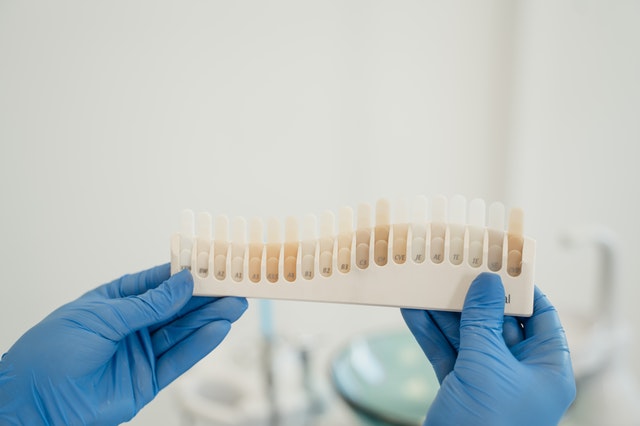
Your smile is the one accessory you were born with; you can take it anywhere, hassle-free. It can help lift your mood, relieve stress, and even make you look younger. It is contagious, attractive, and boosts your confidence. Your smile, whether it be a smirk, a beam, or a grin, is your first impression to the world.
If you have gaps in your teeth, stains, chips, cracks, or teeth that are smaller than average, you may be less inclined to smile. This affects your confidence and influences your quality of life.
One of the best investments you can make in improving your smile is cosmetic veneers. This is an irreversible method that can help design the smile you envision. Let us break down all you need to know before you schedule an appointment with your Klamath dentist.
What are veneers?
Dental veneers are thin, custom-made layers of material used to mask a tooth or a set of teeth permanently. This material is bonded to tooth enamel using dental cement.
There are two main options for veneers, porcelain and resin-composite.
Porcelain veneers
Porcelain veneers, as the name suggests, are thin pieces of porcelain used to adhere to the front-facing of teeth. They are designed to get the ideal color and shape that best matches your desired smile. They have translucent properties that make them most similar to natural teeth, which gives your smile a more authentic appearance. If well maintained, porcelain veneers will not change color and can last decades.
Resin-composite veneers
Composite veneers are made of resin, a material that closely matches the color of teeth. As with porcelain, they adhere to the front of your tooth, masking imperfections. Resin-composite veneers are typically a more cost-effective option and require less preparation time than porcelain veneers. Unfortunately, they are not as durable as porcelain, and not stain resistant.
Preliminary consultation
The preparation for the application involves the removal of tooth structure. You and your dentist will need to have a consultation appointment to ensure this option is best suited for you as it is permanent. During your initial appointment, your teeth will be examined thoroughly. Your dentist will need to look for any signs of tooth decay, gum disease, or any other factors that may rule you out as a candidate for veneers. Procedures such as fillings will need to be done before the application of your veneers. Your dentist may also do x-rays and imaging to determine the overall health of your teeth.
The Process
Both types of veneers will need to start with a clean surface to prevent bacteria from being trapped underneath your veneers, as bacteria can cause decay.
Composite veneers require less preparation and little removal of tooth enamel. In some cases, composite veneers are applied in one appointment. The composite material is selected to match the color of your natural teeth. The composite is applied to each tooth and sculpted to the desired shape. Ultra-violet light is then used to harden the material to your teeth. Once dry, your composite veneers are smoothed and polished to look and feel like real teeth.
Porcelain veneers will typically require multiple visits. Your dentist will evaluate the shape, color, and size of your teeth to design your new smile. To keep you comfortable during the process, your dentist will administer a local anesthetic. Your teeth are then prepared by shaving a thin layer of enamel, about the thickness of a fingernail, from the front and sides of each tooth. This creates a rough surface, which makes it easier for veneers to stick to your teeth. An impression of your teeth is taken to create a mold. This mold will be sent to a laboratory where your custom-fit veneers will be designed. You will be given temporary teeth until your porcelain veneers are ready. Once ready, your dentist will confirm the fit and color to ensure they are suitable. If you are both satisfied, then the bonding process can begin.
Caring for your smile
Patients do report sensitivity or a dull ache after their veneer procedure, so painkillers may be recommended. There will also be a period of adjustment as you get used to the new sensations of biting with your teeth. Your gums will be tender and need to reform around the new teeth. These normal but temporary symptoms should pass in a few days.
Veneers are durable and can last 15 to 20 years. Caring for them as you do your regular teeth and maintaining regular checks with your dentist is important for their longevity. To reduce the risk of damaging your new smile, avoid chewing hard objects such as ice and bones. If you have habits such as teeth grinding, your dentist may recommend you use protective guards while sleeping.
Klamath Smiles Dental Clinic
If you have lost confidence in your smile and are considering veneers in Klamath Falls, our team of exceptional dentists is ready to listen to your dental concerns to provide comprehensive dental care in a comfortable and relaxed environment so you can maintain a healthy, beautiful smile.
Contact our dental clinic in Klamath Falls for a free quote.




